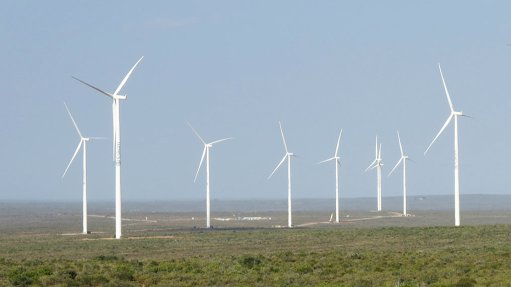Brothers in arms?
Are the World Customs Organisation’s (WCO’s) Revised Kyoto Convention (RKC) and the World Trade Organisation’s (WTO’s) Trade Facilitation Agreement (TFA) brothers in arms or combatants? They seem to be much of a muchness, but let’s explore their relationship.
According to the WCO, the RKC, which entered into force in February 2006, “promotes trade facilitation and effective controls through legal provisions that detail the application of simple yet efficient procedures. The RKC also contains new and obligatory rules for its application which all contracting parties must accept without reservation”.
The WTO says the TFA, which entered into force in February 2017 “contains provisions for expediting the movement, release and clearance of goods, including goods in transit . . . sets out measures for effective cooperation between Customs and other appropriate authorities on trade facilitation and customs compliance issues [and] further contains provisions for technical assistance and capacity building in this area”.
The RKC and the TFA entered into force 11 years apart, with the RKC’s intention being to promote trade facilitation. But one is a convention, and the other an agreement. According to the Council of Europe: “The sole difference between [them] is the form in which a State may express its consent to be bound. Agreements may be signed with or without reservation as to ratification, acceptance or approval. Conventions may, in principle, be ratified.”
South Africa ratified the RKC – on May 18, 2004. Interestingly, the WTO only required the ratification of the TFA, which South Africa duly did, on Noverber 30, 2017.
For more information about the difference between the two, you might find Hans-Michael Wolffgang and Edward Kafeero’s article, ‘Old wine in new skins: analysis of the FTA vis-à-vis the RKC’, which apprared in the World Customs Journal of Septermber 2014, interesting. Bear in mind, however, that it was published bnefore the FTA entered into force. In their comparative study, Wolfgang and Kafeero found that the TFA is mainly a reflection of the RKC provisions, and that few aspects of the TFA that are not regulated by the RKC are, in fact, catered for by other WCO instruments and tools. At the time of writing, Wolfgang and Kafeero contended that, if the TFA failed to come into force, a further developed RKC would be a perfect substitute.
The RKC elaborates several key governing principles, including the principles of transparency and predictability of Customs actions; standardisation and simplification of goods declaration and supporting documents; simplified procedures for authorised persons; maximum use of information technology; minimum necessary Customs control to ensure compliance with regulations; use of risk management and audit-based controls; coordinated interventions with other border agencies; and partnership with the trade.
The TFA elaborates on the trade facilitation and customs compliance issues which require effective cooperation among members, and these include the publication of information; the opportunity to comment, information before entry into force, and consultations; advance rulings; procedures for appeal or review; other measures to enhance impartiality, non-discrimination and transparency; notifications for enhanced controls or inspections; discipline on fees and charges imposed on or in connection with importation and exportation and penalties; release and clearance of goods; border agency cooperation; movement of goods intended for import under Customs contol; formalities connected with importation, exportation and transit; freedom of transit; and Customs cooperation.
Wolffgang and Kafeero conclude that trade facilitation can still be successfully steered by the RKC and other related WCO instruments and tools, and that an updated RKC would be even more modern and comprehensive than the TFA. So, why was the FTA then created?
Article Enquiry
Email Article
Save Article
Feedback
To advertise email advertising@creamermedia.co.za or click here
Announcements
What's On
Subscribe to improve your user experience...
Option 1 (equivalent of R125 a month):
Receive a weekly copy of Creamer Media's Engineering News & Mining Weekly magazine
(print copy for those in South Africa and e-magazine for those outside of South Africa)
Receive daily email newsletters
Access to full search results
Access archive of magazine back copies
Access to Projects in Progress
Access to ONE Research Report of your choice in PDF format
Option 2 (equivalent of R375 a month):
All benefits from Option 1
PLUS
Access to Creamer Media's Research Channel Africa for ALL Research Reports, in PDF format, on various industrial and mining sectors
including Electricity; Water; Energy Transition; Hydrogen; Roads, Rail and Ports; Coal; Gold; Platinum; Battery Metals; etc.
Already a subscriber?
Forgotten your password?
Receive weekly copy of Creamer Media's Engineering News & Mining Weekly magazine (print copy for those in South Africa and e-magazine for those outside of South Africa)
➕
Recieve daily email newsletters
➕
Access to full search results
➕
Access archive of magazine back copies
➕
Access to Projects in Progress
➕
Access to ONE Research Report of your choice in PDF format
RESEARCH CHANNEL AFRICA
R4500 (equivalent of R375 a month)
SUBSCRIBEAll benefits from Option 1
➕
Access to Creamer Media's Research Channel Africa for ALL Research Reports on various industrial and mining sectors, in PDF format, including on:
Electricity
➕
Water
➕
Energy Transition
➕
Hydrogen
➕
Roads, Rail and Ports
➕
Coal
➕
Gold
➕
Platinum
➕
Battery Metals
➕
etc.
Receive all benefits from Option 1 or Option 2 delivered to numerous people at your company
➕
Multiple User names and Passwords for simultaneous log-ins
➕
Intranet integration access to all in your organisation

















